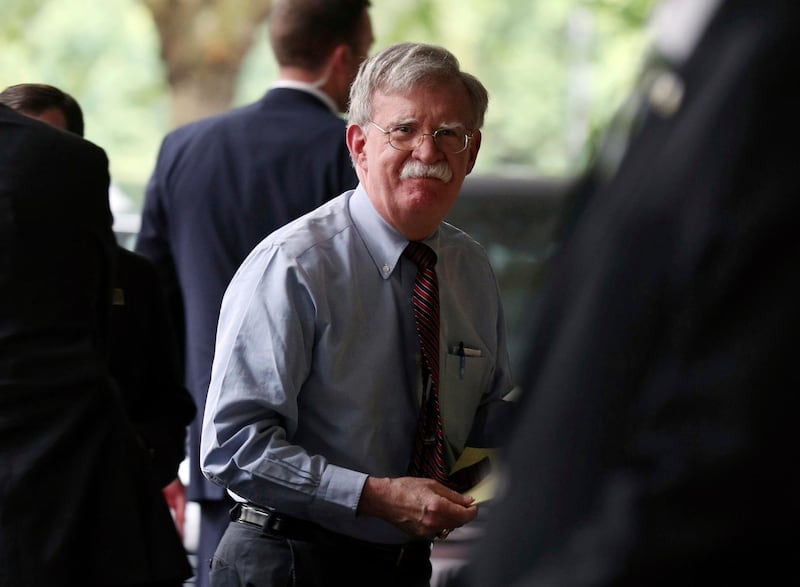Britain is “first in line” for a trade deal with the US that could be agreed “very quickly,” senior White House official John Bolton has said.
The National Security Advisor appeared to suggest Washington would support a no-deal withdrawal from the European Union – an exit without a divorce agreement on issues such as trade. Critics warn this could send the UK into a recession and cause severe disruption.
Additionally, a senior Trump administration official confirmed to Reuters on Thursday that such a trade accord could come into effect on November 1, the day after Britain is due to leave the European Union.
Mr Bolton, who was speaking in London as he holds talks with the new government led by Boris Johnson, said a trade deal could be worked out on a sector-by-sector basis with manufacturing potentially at the front of the queue.
Mr Johnson said the US were "very tough negotiators" but said a "great deal" was there to be done to open up business opportunities.
Former foreign secretary Jack Straw warned Mr Bolton had “very bellicose” world views and came from a “high transactional organisation", speaking to the BBC on Tuesday.
I had a great meeting with UK Prime Minister Boris Johnson yesterday. We discussed trade, security, and opportunities to deepen our bilateral relationship after the UK leaves the EU. The US and UK are on course for an unprecedented partnership. pic.twitter.com/wVWp8Mhaza
— John Bolton (@AmbJohnBolton) August 13, 2019
The UK is set to leave the EU on October 31. Appointed as prime minister last month, Mr Johnson has said the UK must withdraw on October 31 with or without a withdrawal agreement from Brussels.
He said on Tuesday that the most important free trade agreement that needed to be hammered out was with Brussels.
The prime minister has been in regular contact with President Donald Trump and UK foreign secretary Dominic Raab recently wrapped up a visit to Washington.
"To be clear, in the Trump administration, Britain's constantly at the front of the trade queue, or line as we say," Mr Bolton told reporters.
"We want to move very quickly. We wish we could have moved further along in this with the prior government." Mr Bolton added.
Mr Trump in particular has been critical of the approach to Brexit by Mr Johnson’s predecessor Theresa May.
Talking about the prospect of a no-deal, he said: “If that’s the decision of the British government we will support it enthusiastically, and that’s what I’m trying to convey. We’re with you, we’re with you.”
Mr Bolton, like some in the Trump administration, also had harsh words for Brussels.
“The fashion in the European Union: When the people vote the wrong way from the way the elites want to go, it’s to make the peasants vote again and again until they get it right,” he said.
Like many leading Eurosceptics including Brexit party founder Nigel Farage, Mr Bolton has referred to the date that Britain voted to leave the EU as the country's "Independence Day".
The chairman of the UK Parliament’s foreign affairs committee, Tom Tugendhat, was cautious about a prospective trade agreement with the US.
"This isn't some sort of dewy-eyed, soft, romantic vision of a special relationship that he's trying to kindle for romantic and historic reasons," he told the BBC.
"He has a very specific interest which is to defend and extend US interests,” he said.
Mr Bolton is expected to meet a number of other senior UK officials on Tuesday.






